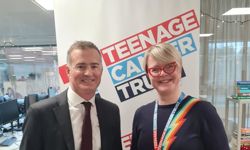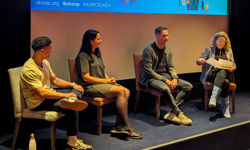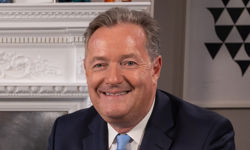The site will provide a new space for discussion and interaction on the biggest challenges affecting the lives of billions of people across the developing world, including poverty, hunger, infant mortality, adaptation to climate change and economic development.
One aim of the website, which launches just a week before a major UN summit, is to hold governments, institutions and NGOs accountable for the implementation of the United Nations millennium development goals (MDGs), which 192 countries signed up to in 2000. Huge advances have been made with many of the MDGs, and the new site will enable people around the world to better monitor how each country is performing.
For the first time, individuals will be able to access a central data store using the world's top sources for development and aid data, through which they can access development statistics, and information. For example, users will be able to find out who has given the most aid to Pakistan, or which countries have the highest Aids rates.
Alan Rusbridger, Editor-in-Chief, Guardian News & Media, said: "All too often the mainstream press ignores long-term development stories. However, it is essential to have a place where some of the biggest questions facing humanity are analysed and debated, and through which we can monitor the effectiveness of the billions of pounds of aid that flows annually into the developing world. The creation of this website is a natural step for the Guardian, which has always been internationalist in its outlook and passionate about social justice."
Kate James, Chief Communications Officer for the Bill & Melinda Gates Foundation, which is part-funding the site along with Guardian News & Media, said: " We are excited to be working with the Guardian on this unique project – creating a global hub for information, debate and action around global development. We welcome the Guardian's commitment to bringing together and galvanizing the community engaged on these issues and believe that, in doing so, this hub can play an important role in putting a spotlight on global health and development."
The website features the best of the Guardian's writers on development, including Madeleine Bunting, Sarah Boseley, Larry Elliott and John Vidal, as well as bringing together a selection of the most distinctive development blogs from around the world and a monthly 'Poverty Matters' podcast. In keeping with guardian.co.uk's mutualisation strategy, the website will focus on linked reporting and response, giving readers the ability to follow conversations and debates, compare sources and links, and get involved.
It is also being supported by more than 20 of the world's leading development experts, including Nobel prize winner Amartya Sen and American economist and Director of the Earth Institute at Columbia University, Jeff Sachs.
Background Information
• The creation of the global development website comes in the wake of the Guardian's award-winning integrated development project in the Ugandan village of Katine.
• The Millennium Development Goals are eight international development goals, adopted by all 192 United Nations member states in the year 2000 and set to be achieved by 2015:
Goal 1: Eradicate extreme poverty and hunger
Goal 2: Achieve universal primary education
Goal 3: Promote gender equality and empower women
Goal 4: Reduce child mortality
Goal 5: Improve maternal health
Goal 6: Combat HIV/AIDS, malaria and other diseases
Goal 7: Ensure environmental sustainability
Goal 8: Develop a Global Partnership for Development
• Guided by the belief that every life has equal value, the Bill & Melinda Gates Foundation works to help all people lead healthy, productive lives. In developing countries, it focuses on improving people's health and giving them the chance to lift themselves out of hunger and extreme poverty.










